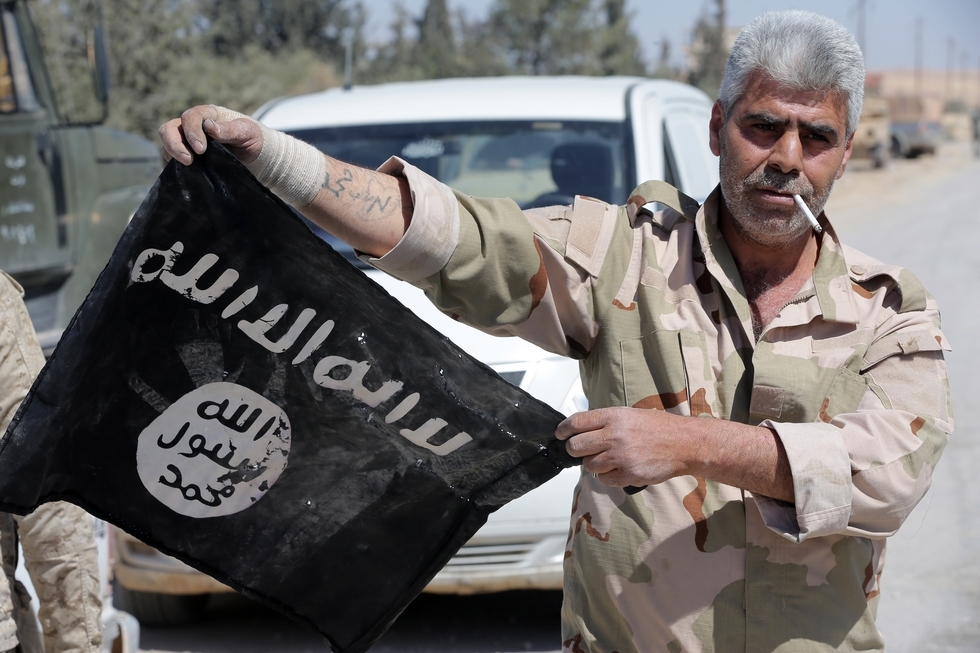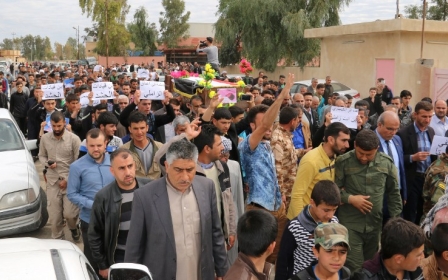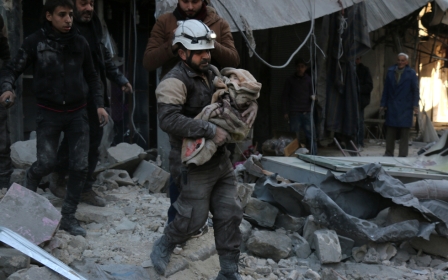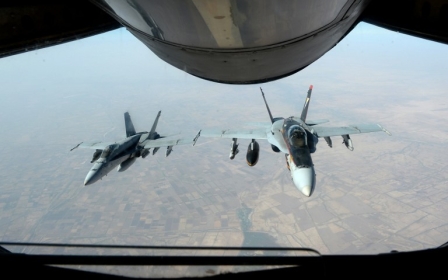IS launches 'deadly' mustard gas attack on Syrian airbase

The Islamic State (IS) group has mounted a deadly gas attack against Syrian troops at a besieged eastern airbase, state news agency SANA has said.
SANA on Tuesday did not say how many soldiers had been killed in the attack on the government-controlled airbase outside the divided eastern city of Deir Ezzor.
"Daesh terrorists attacked Deir Ezzor military airport with rockets carrying mustard gas, causing some people to suffocate," it reported late Monday, using an alternative name for IS.
It is the latest in a string of suspected mustard gas attacks by the group in Syria and neighbouring Iraq.
On 9 March, a suspected IS gas attack on the Iraqi town of Taza, south of Kirkuk, killed three children and wounded about 1,500 people, with injuries ranging from burns to rashes and respiratory problems.
While the chemical agents allegedly used by IS so far have been among their least effective weapons, the psychological impact on civilians is considerable.
A total of 25,000 people fled their homes in and around Taza last month, fearing another attack.
IS has been battling to capture Deir Ezzor airbase since 2014.
Deir Ezzor province is vital for IS because it lies between their de facto Syrian and Iraqi capitals Raqqa and Mosul.
The airbase provides the only supply route other than air drops to the government-held sector of the city, where more than 200,000 civilians are living under IS siege.
The UN on Tuesday announced that peace talks are due to resume on 11 April.
UN spokesman Ahmad Fawzi told journalists that mediator Staffan de Mistura expects to start by meeting with the main opposition High Negotiations Committee.
In recent weeks, IS has faced intense pressure in Syria at the hands of both the Russian-backed army and US-backed Kurdish-led rebels.
An army offensive pushed them out of the ancient city of Palmyra late last month, opening up the possibility of a strike across the desert to relieve the siege of Deir Ezzor.
Middle East Eye propose une couverture et une analyse indépendantes et incomparables du Moyen-Orient, de l’Afrique du Nord et d’autres régions du monde. Pour en savoir plus sur la reprise de ce contenu et les frais qui s’appliquent, veuillez remplir ce formulaire [en anglais]. Pour en savoir plus sur MEE, cliquez ici [en anglais].




